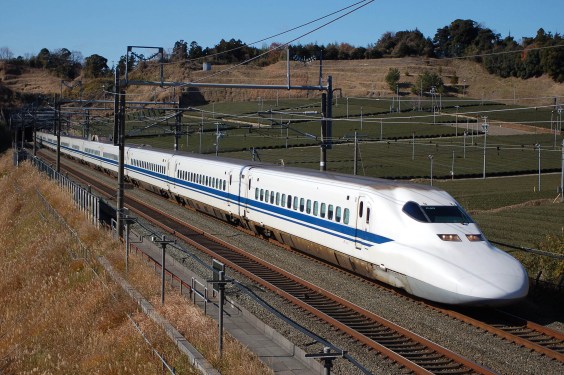- Anthony Foxx: Transportation Funding Doesn't Actually Run Out Until July (The Hill)
- Austin's Award-Winning Bus Signal System Only Works 15-20 Percent of the Time (KUT.org)
- Portland Reforms TIF Districts (The Oregonian)
- Atlanta's MARTA Looking for Public Input on Rail Expansion Proposal (Progressive Railroading)
- The Average U.S. Household Spends $800 a Month on Car-Related Expenses (Planetizen)
- Connecticut's New CTfastrak -- Best Busway in America? (Medium)
- Cycling Rates in Inner London Have Increased 144 Percent in the Last Decade (The Guardian)
- Memphis Will Tear Out Newly Installed Bike Lanes (Memphis Daily News)
- Boston Residents Like the One-Way Streets That Resulted From Heavy Snow (Globe)
- Cincinnati Adjusting Parking Meter Rates Based on Demand (Enquirer)
- DCs School Options Getting Better, But Getting Kids to School Is Harder (City Paper)
Today's Headlines
Today’s Headlines
Stay in touch
Sign up for our free newsletter
More from Streetsblog USA
Ambulance Data Reveals That Boston Drivers Are 4 Times More Likely to Run Over Pedestrians From Black Neighborhoods
"Overall, residents of predominantly Black and Latino neighborhoods are about four times more likely than residents of predominantly white neighborhoods to be struck as a pedestrian."
Tuesday’s Sprawling Headlines
Sprawl seems to be having a moment, but it remains a very shortsighted and environmentally disastrous way to solve the housing crisis.
Does Constant Driving Really Make Our Country Richer?
A new study reveals that constant driving is making America less productive and prosperous — and getting people on other modes could help right the ship.
This Threatened Toronto Bike Lane Gets More Rush Hour Traffic Than the Car Lane
Toronto leadership claim "no one bikes" on their cities' paths — but the data shows otherwise.
How to Do High-Speed Rail Right
At the APTA conference in San Francisco, representatives from France, Germany, and Japan revealed the secrets behind their high-speed rail success stories.
‘We’re Not Copenhagen’ Is No Excuse Not to Build a Great Biking And Walking City
A team of researchers identified eight under-the-radar cities leading the local active transportation revolution — and a menu of strategies that other communities can and should steal.





